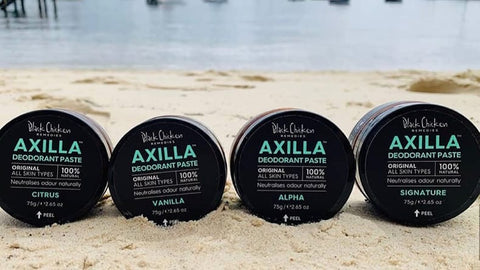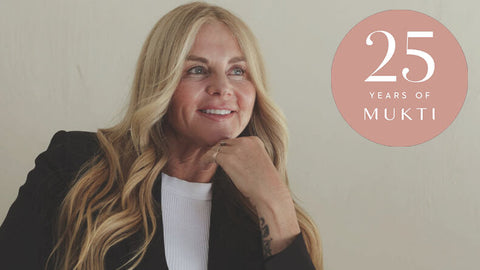Guess what? It is not necessarily so. There is no such thing as one perfect skin type we should all be aspiring to. Everyone's skin undergoes constant changes. It can be as shiny as a disco ball at lunchtime and drier than the desert by the evening - and that's perfectly normal! Our sebaceous glands, like the rest of our system, are more productive during the day and slow down at night, producing less oil.
Don't try to match your natural skincare routine to your constantly-evolving skin type. Instead, stick to a stable of great natural skincare products that you know work for you, but adjust your skin care routine according to what your skin is doing each day.
Which natural skincare products do you really need?
● A good natural cleanser that is not too harsh
● A natural toner or facial spritz
● A natural light, daytime moisturiser or serum
● A natural richer night moisturiser or serum
● A natural exfoliator
● A natural vitamin and mineral-packed face mask
With these key basics, you are set for whatever your skin throws at you. If your skin feels dry, use a couple of drops of your richer night cream in the morning. If your skin feels oilier than usual, use your light moisturiser at night - or abandon the moisturiser for a day or two and just use your facial spritz. This is ideal for sticky, oily summer skin!
If your skin is breaking out, treat it to a dose of vitamins and minerals from the inside with a superfood supplement. I love the Inner Glow powder by The Beauty Chef
The climate and environment has a huge impact on our skin
A girl with 'combination' skin who lives in Tasmania with its cold winters will have different skincare concerns than a girl with combination skin who lives in Cairns with its hot sticky climate. Likewise, if you are a shepherdess who lives up a mountain you are much less likely to have clogged pores than if you are a high-flying lawyer who negotiates traffic jams every day in the middle of a smoggy city, regardless of what 'type' your skin is.
Overall health affects the skin
Health problems such as allergies, digestive issues, thyroid conditions and polycystic ovaries can have a huge influence on the condition of the skin. Likewise, hormonal fluctuations during the course of your normal monthly cycle can make your skin oily one day and dry the next.
Skin type is subjective
If your skin develops a bit of a shine by the end of the day you might decide you have oily skin. If you get a break-out you might label yourself as having problem skin. If you have fine lines on your face, you might decide to rush out and buy an anti-aging cream. Normal fluctuations like this can send us into a tailspin... and a headlong rush to the beauty counter to part with our hard-earned dollars.
Skin problems take time to surface
The skin you see in the mirror today will not be the same tomorrow. Signs of sun damage may not be visible until you are in your forties, yet protecting your skin from the sun is still important right now. Dry skin doesn't happen over night - it takes weeks or months or drinking too much alcohol and not enough water, stressing out, tanning, smoking and all the other things we know we shouldn't do. Equally, it can't be fixed overnight with the thickest moisturiser on the block.
Skin typing shouldn't be based on age
Older women are often prescribed rich, thick and heavy moisturisers. However, they may be just as likely to get a breakout from clogged pores. Likewise teenagers can have dry, dehydrated skin. Don't get typecast because of your age.
We hope we've given you a few reasons to think about your skin the way it is - unique to you. Your natural skincare products should be versatile enough to enable you to vary your routine depending on what your skin needs at any given time. Armed with this new information, go forth and laugh in the face of facial mapping. Not only will you save yourself a fortune, but you'll be helping the environment by reducing your consumption.



